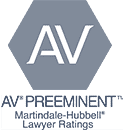Ohio Truck Accident Help
A Division of Ohio Truck Accident

How can we help you today?
Truck Crashes Are Different. So Is Ohio Truck Accident Help.
Free Consults // Available 24/7 // Truck Industry Experience // No Recovery, No Fee
Who's At Fault After a Truck Crash?
“Liability” is the legal term for another’s obligation. After being hurt in a truck accident, the liable party will ultimately be the one to answer for the harm inflicted and compensate you for your losses. At Ohio Truck Accident Help, our truck accident lawyers are dedicated to protecting Ohio truck accident victims. Let us pursue justice against those at fault.
Free Consults. Call (855) 721-2737
All truck drivers and companies owe a duty of care to others on the road. When this obligation is violated through negligence or recklessness, the liable party must answer for the resulting damages. However, truck accidents are often more complex than standard car crashes due to the number of parties involved and the significant evidence required to prove fault.
Determining liability in truck accidents often requires investigating multiple potential at-fault parties. Below are the most common contributors:
Driving a large commercial vehicle requires skill, focus, and adherence to safety standards. When truck drivers fail to meet these responsibilities, they can cause catastrophic accidents and be held liable.
Examples of Truck Driver Negligence:
Trucking companies are often liable for the actions of their employees and the condition of their fleet. They are responsible for maintaining safety standards and ensuring their operations comply with federal regulations. When companies prioritize profits over safety, accidents are more likely to occur.
Examples of Truck Company Negligence:
When a truck’s mechanical failure causes an accident, the manufacturer of the defective part can be held liable. Product liability claims often focus on defects in design, manufacturing, or failure to warn about potential risks.
Common Defective Truck Parts:
In these cases, proving liability typically requires expert testimony and an in-depth investigation of the truck’s maintenance and repair history.
Improperly loaded or overloaded cargo is a frequent cause of truck accidents. Shifting loads can destabilize trucks, leading to rollovers, jackknifing, or spilled cargo on the roadway.
Examples of Loader Negligence:
Regular maintenance is critical for commercial vehicles to operate safely. When mechanics or third-party maintenance providers fail to inspect or repair critical systems, they may share liability for accidents caused by these oversights.
Maintenance Failures That Cause Truck Crashes:
Determining fault in a truck accident can be challenging. Unlike standard car accidents, truck crashes often involve multiple parties, complex regulations, and substantial evidence controlled by trucking companies. Understanding how liability is proven can help you take the first steps toward securing the compensation you deserve.
To prove liability in a truck accident, it must be shown that one or more parties acted negligently. This involves establishing that:
For example, a truck driver who ignores federal rest requirements and causes a crash while fatigued breaches their duty of care. Similarly, a trucking company that skips regular maintenance fails to uphold its responsibility to keep its vehicles safe.
Proving that a party violated their duty of care often requires:
Building a strong truck accident claim requires gathering a variety of evidence, including:
Truck accidents are often overwhelming for victims, especially when large trucking companies or insurers are involved. A skilled lawyer plays a critical role in:
Holding the right parties accountable after a truck crash ensures you receive full compensation for your medical bills, lost wages, pain and suffering, and future needs. Without proving liability, insurers may attempt to shift blame or minimize your claim, leaving you without the financial recovery you need.
At Ohio Truck Accident Help, we understand how complex truck accident cases can be. Our team is experienced in uncovering hidden evidence, navigating trucking regulations, and building strong cases to hold negligent parties accountable. Let us investigate your crash and explain who’s responsible.






The Role of Insurance in Truck Accident Claims
Truck drivers and trucking companies are required to carry significant insurance coverage to compensate victims in the event of an accident. However, insurance companies often prioritize protecting their policyholders—and their bottom line—over compensating victims. Understanding how insurance works in truck accident cases can help you navigate the process and avoid common pitfalls.
Free Consult with a Lawyer: (855) 721-2737
Once an insurance company is notified of a truck accident, its primary goal is to reduce or deny liability to minimize payouts. This involves employing strategies such as:
Navigating the tactics of large insurance companies can be overwhelming, especially after a serious truck accident. A skilled lawyer plays a vital role in countering these strategies and ensuring you receive fair compensation.
Insurance companies act swiftly to investigate and minimize claims, often securing statements or evidence that work in their favor. Delays in seeking legal representation can weaken your case, as critical evidence may be lost or destroyed.
Ohio Truck Accident Help is committed to helping you get the financial security to heal. We’re compassionate about what you endured and practical about your needs after a truck accident.
Testimonials
"somebody and not just a number. I would not hesitate to recommend anyone to retain Ohio Truck Accident Help for their personal injury needs. Thanks for all of your help."
Case Result
Lake County Pedestrian Fatality
Case Result
Portage County Left of Center Truck Crash

Your Rights & Legal Options After a Truck Accident
When you’re injured in a truck accident, your legal rights include holding negligent parties accountable and recovering compensation for all the losses you’ve endured. Whether it’s medical bills, lost income, or non-economic damages like pain and suffering, a thorough investigation is essential to uncover negligence and establish liability.
By working with an experienced truck accident legal team, you can maximize your recovery and ensure you’re not left covering the costs of someone else’s negligence.
Hurt in a Tuck Crash? Get Your Free Consult.
Once negligence is established and liability is proven, the at-fault party (or parties) is legally obligated to compensate you for your losses. This includes immediate expenses and long-term impacts, such as:
Liability in a truck accident may extend to multiple parties, including the truck driver, trucking company, cargo loaders, maintenance providers, or truck part manufacturers. Each case is unique, and determining liability often requires a detailed investigation.
Ohio follows a comparative negligence rule, meaning you can still recover compensation if you’re partially at fault, as long as your share of fault is less than 51%. However, your compensation will be reduced by your percentage of fault. For example, if you’re 20% at fault, your recovery is reduced by 20%.
Fault is determined by examining evidence like police reports, black box data, maintenance logs, and eyewitness accounts. Accident reconstruction experts may also analyze the crash to identify how negligence contributed to the collision.
Yes, trucking companies are often liable for their drivers’ actions, especially if they failed to enforce safety regulations, hired unqualified drivers, or pressured employees to meet unrealistic schedules that led to negligence.
If the insurance company denies liability, consult an attorney immediately. Your lawyer can gather additional evidence, challenge the insurer’s findings, and pursue legal action to hold the responsible parties accountable.
Truck accident claims are complex and often involve powerful insurers and legal teams. An experienced lawyer can uncover hidden evidence, navigate trucking regulations, and build a compelling case to ensure you recover the full compensation you deserve.
Ohio Truck Accident Help is dedicated to assisting Ohio truck accident victims at every stage of their case. Our experienced attorneys work to secure the maximum settlement or courtroom verdict by fighting against lowball offers and holding negligent parties accountable, ensuring you receive the compensation you deserve.